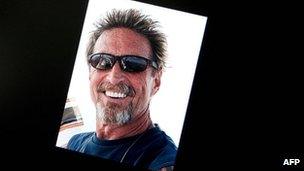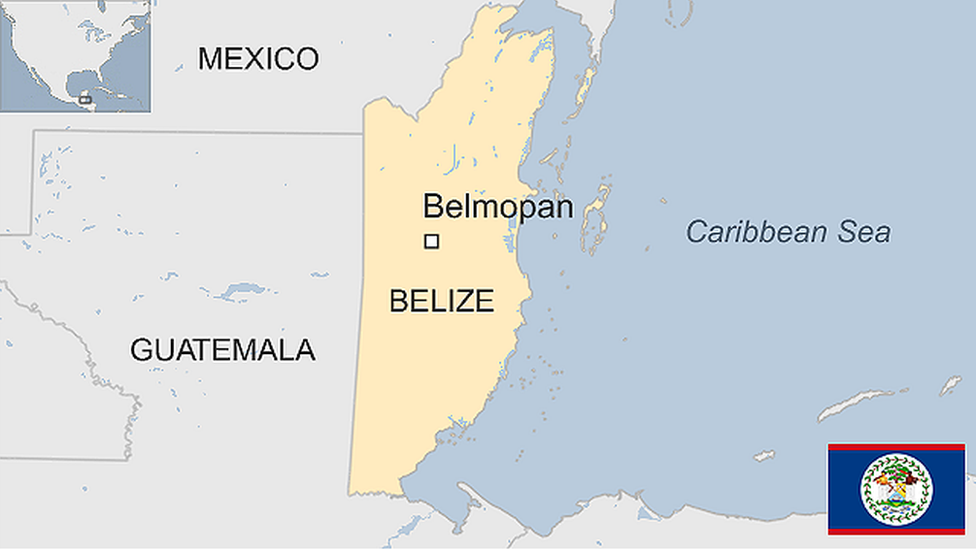Belize seeks software pioneer John McAfee over murder
- Published

John McAfee said he lost much of his fortune in the financial crisis
The founder of the anti-virus software firm McAfee is being sought by police in Belize for questioning over the murder of his neighbour.
John McAfee is a "person of interest", rather than a suspect, at this stage of the investigation into the death of Gregory Faull, police say.
Mr Faull was found on Sunday with a gunshot wound to his head at his home on the tiny island of Ambergris Caye.
Mr McAfee has denied any involvement in the killing.
He told the US technology magazine Wired that he knew "nothing, other than I heard he had been shot".
The 67-year-old said he had been at odds with the authorities in Belize for months and that was why he was in hiding from them.
'Not well liked'
Raphael Martinez of Belize's Ministry of National Security said no charges had been filed in the case and Mr McAfee was simply "a person of interest".
"It's too early in the investigation," he told the Associated Press. "To say he is a suspect would be a bold statement."
Another person has already been detained over the case but the police say they are continuing to search for Mr McAfee, the BBC's Central America correspondent Will Grant reports.
Mr Faull, 52 and originally from Florida, was found lying in his hallway in a pool of blood by his housekeeper on Sunday morning.
His computer and phone were missing but there are no signs of forced entry, police say.
Mr McAfee, who made millions after selling his software firm in the early 1990s, settled in the Central American country around four years ago.
Earlier this year, he was detained by police over the alleged possession of guns and drugs. He was later released without charge.
He told Wired that he would not hand himself into the police. "They've been trying to get me for months. They want to silence me. I am not well liked by the prime minister. I am just a thorn in everybody's side," he is quoted as saying.
Now a yoga aficionado, John McAfee has had no role in the anti-virus software company he founded after he sold his stake in the 1990s.
He told the New York Times in 2009 that his personal fortune had dwindled considerably, from $100m (£63m) to $4m (£2.5m) due to the financial crisis.
- Published10 April 2023
